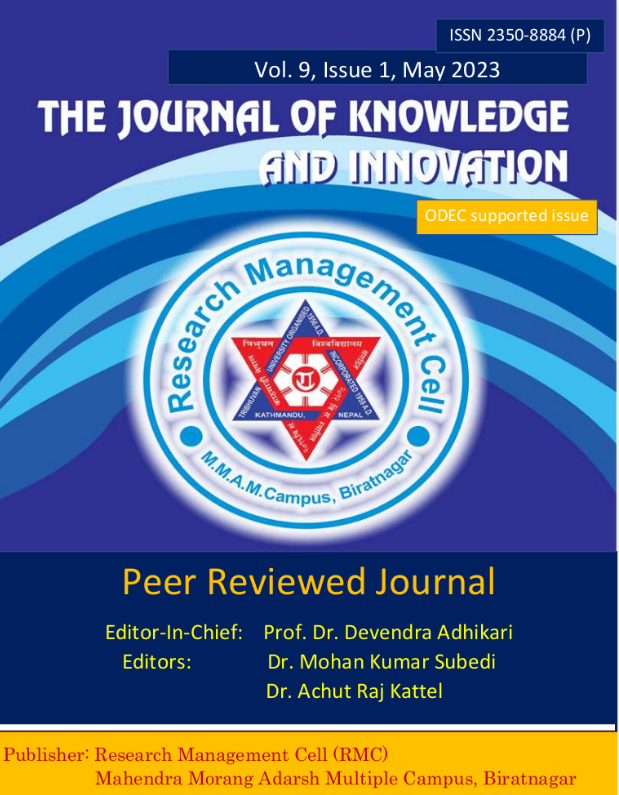Democratic Transition of Nepal-2006: A Theoretical Sociological Analysis
DOI:
https://doi.org/10.3126/jki.v9i1.53938Keywords:
Democracy, Game Theory, Nepal, revolution, transitionAbstract
Democracy approximates a politically equal situation to all human subjects. People’s voice for democracy and increasing number of countries adopting a democratic regime indicate democracy’s endorsement of the notion ‘people as sovereign’. Often said, each People’s Movement is inclined to one’s right to freedom, equality and justice. Thus, democracy is deliberately inserted into any of the contemporary debates ranging from a peaceful deal to any social movement and war, be it the external type of Independence Movement, or the internal type of social, cultural, economic and political riots, protest movements or great revolutions including the French Revolution and others. The late-twentieth and early twenty-first century witnessed communist regimes’ gradual greet to democracy, and a situation occurred as if democracy was an undisputed form of regime. In 2006, a collective campaign of people throughout the country came to the street making alliance with the civil society organizations, previously underground Maoist party and other mainstream political parties to protest the royal takeover and bring democracy back into practice. The movement was culminated with bringing a huge transition – Nepal’s Democratic Transition-2006 – which this paper attempts to theorize. By giving special reference to the Game Theory of Daron Acemoglu and James A. Robinson, this paper verifies the role of micro and macro components as equally and strategically active for enabling the democratic transition of a nation.
Downloads
Downloads
Published
How to Cite
Issue
Section
License
Copyright (c) 2023 Research Management Cell (RMC), Mahendra Morang Adarsh Multiple Campus

This work is licensed under a Creative Commons Attribution-ShareAlike 4.0 International License.
This license enables reusers to distribute, remix, adapt, and build upon the material in any medium or format for noncommercial purposes only, and only so long as attribution is given to the creator.




